by Nick Fox
Every fall I read the first stanza of the Iliad out loud to my students: “Sing, Goddess, the Anger of Peleus’ son Achilles / and its devastation…” (Iliad I:1-2). I ask them what the poem is about and eventually someone states the obvious: Achilles’ anger. Then I ask how the poem ends. Someone says with a horse. He’s wrong. In fact, most the memorable cultural highlights from the Trojan war—the abduction of Helen, the Trojan Horse, the Death of Achilles—never show up in the Iliad. Even more discouraging, no glorious gains. King Arthur gets Camelot, Beowulf saves Heorot hall, Aeneas gets Rome. What does Achilles get? He gets angry, mourns his dead friend, and then brutally kills a lot of Trojans. As far as a war story goes, the Iliad is a killjoy.
What makes the Iliad a great war epic then? Why is it folklore that Alexander the Great, one of the greatest military conquerors of the Western world, slept with the Iliad (in scroll form, mind you) under his pillow so that he might fight as the reincarnation of Achilles? Why is Achilles remembered as the great warrior who won glory at Troy? To me, the gainless brutality and relentless sorrow written about in the Iliad doesn’t reaffirm the glory gained in war but squashes it. And this is, as far as I can tell, what we get from the first great war epic: the demystification of the glories of war and the tragic delusion of Force.
In her famous essay “The Iliad, or, The Poem of Force,” Simone Weil says the true hero of the Iliad is Force. By Force she means, “It is the x that turns anybody who is subject to it, into a thing…Somebody was here, now nobody is here at all.” The Force on display in the Iliad is not the mechanized and industrialized warfare we know. Instead, it is spears and swords ripping and puncturing flesh, vividly. Here is an example:
Hippolochos sprang away, but Agamemnon killed him dismounted,
(Iliad XI: 145-147)
cutting away his arms with a sword-stroke, free of the shoulder,
and sent him spinning, like a log, down the battle.
The Iliad is chock-full of gruesome descriptions of bronze cutting limbs and shattering bone. This stuff may just be an example of something like a Tarantino e.g. Kill Bill or Django fascination with graphic human carnage. Or a Mel Gibson war movie interested in giving the most brutal war examples on record. Gahw! Look at all that blood! In some ways, I think Homer is interested in the gruesome spectacle of Bronze Age combat. But, unlike Tarantino and Gibson, Homeric death scenes are especially visceral for the audience because the warrior getting gutted is a man with a name, a lineage, and a history. He’s not just an anonymous human body -or whole group of bodies- exhibited to bleed and die. There are no anonymous deaths in the Iliad. Every death is particular. Although the individual warriors may reduce each other to objects, Homer refuses. Here he tells of a pair of brothers, one of whom will shortly die.
There was a man of the Trojans, Dares, blameless and bountiful,
(Iliad V: 9-12)
a priest consecrated to Hephaistos, and he had two sons,
Phegus and Idaios, well skilled both in fighting.
These two breaking from the ranks of the others charged against Diomedes.
These young men enter under the contract of Force, and Phegus dies in the dust only a few lines after we learn who he is. Someone has become nothing. Although the Force of combat destroys young men, Homer resists the Force by reminding us of a man’s identity before he is slain. Still, Force in war takes individuals and turns them into dust. There is only death, and this is most clearly seen in the waring rage of Achilles, the incarnation of war.
Achilles is the ultimate weapon. As one of my students said, he is like a nuclear weapon released on the Trojans. He kills without pity or discrimination. Here is Homer’s description:
As inhuman fire sweeps on in fury through the deep angles
(XX: 490-494)
of a drywood mountain and sets ablaze the depth of the timber
and the blustering wind lashes the flame along, so Achilles
swept everywhere with his spear like something more than a mortal
harrying them as they died, and the black earth ran blood.
As you read about Achilles’ exploits, you can hear Oppenheimer saying, “I am become death, destroyer of worlds.” As an incarnation of war, Achilles demands ultimate, sweeping annihilation. Three chapters of killing culminate in the death of Hector, the prince and protector of Troy. Achilles attaches Hector’s limp body to the back of his chariot and drags the body around the walls of Troy for his family to witness.
A cloud of dust rose where Hektor was dragged, his dark hair was falling
(XXII 401-407)
about him, and all that head that was once so handsome was tumbled
in the dust; since by this time Zeus had given him over
to his enemies, to be defiled in the land of his fathers.
So all his head was dragged in the dust; and now his mother
tore out her hair…and his father beloved groaned pitifully.
This iconic disgracing of Hektor’s body intentionally furthers the sorrow of Hector’s surviving family members. It does little for Achilles. After all the Force Achilles brings against the Trojans, he is still angry. This destruction has brought him no respite, and he cannot fill the void in his heart that was caused by the death of his friend, Patroklos. As Weil writes: “Force is as pitiless to the man who possesses it, or thinks he does, as it is to its victims: the second it crushes, the first it intoxicates.” Achilles subjugates a slew of Trojans to the equation of Force, and in doing so he loses all sense of pity for other human beings. Ironically, pity turns out to be the one thing Homer thinks can lessen a small portion of Achilles’ suffering.
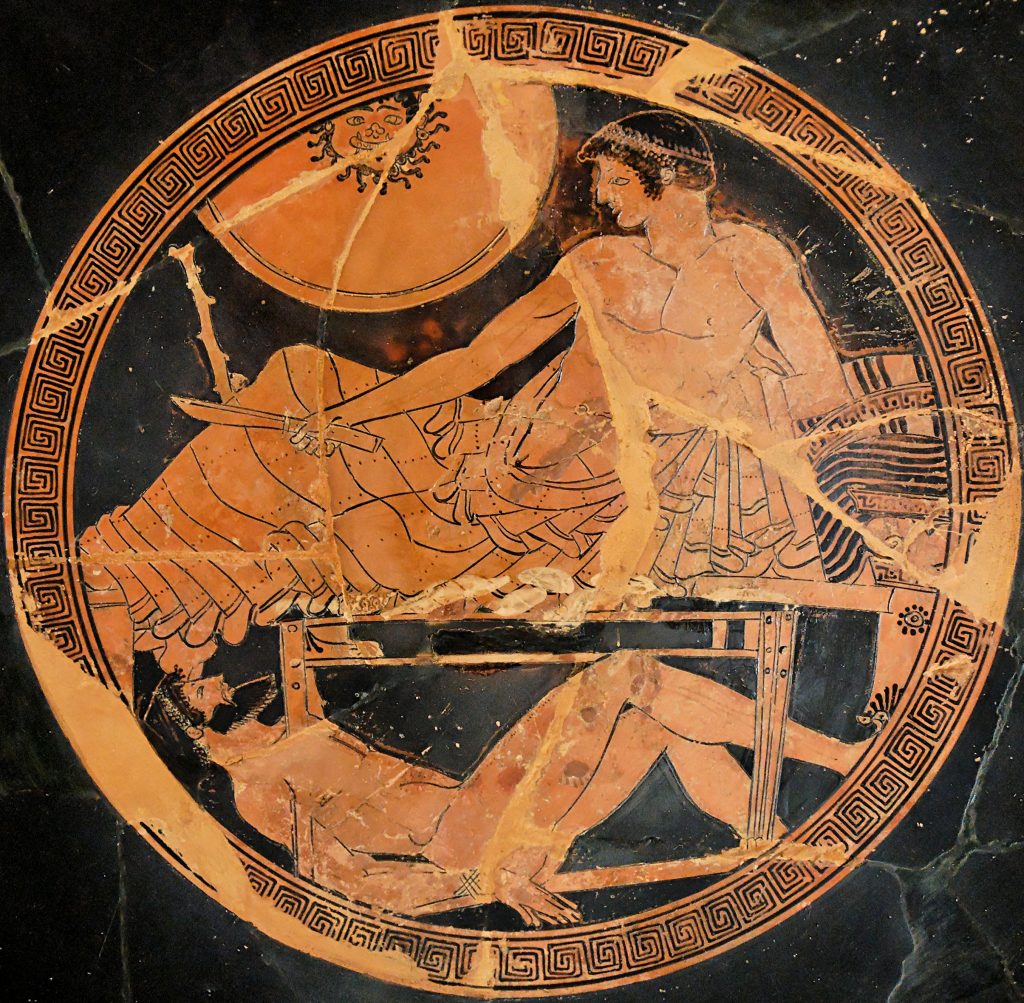
This is the truth that Achilles swallows at the end of the poem. Force only brings more sorrow, and this does nothing to quell his own sorrow. Force exacerbates sorrow and can never end it. The Iliad is not an anti-war story as we might conceive it with a clear moral lesson about the sorrows of war. I don’t think Homer thought he could end war, just like he couldn’t stop floods or forest fires. But, by putting violence and sorrow on display in the way Homer does, he saps war of its glorious claim and forces the reader of the poem to witness a mother and father in despair.
Life in war is suffering, Achilles tells Priam at the end of the poem. Weil, in a terrible historical predicament herself (born Jewish, she is living in Nazi occupied France) also echoes Achilles’ sad realization. “Perhaps all men, by the very act of being born, are destined to suffer violence; yet this is a truth to which circumstance shuts men’s eyes. The strong are never absolutely strong and the weak are never absolutely weak, but neither is aware of this. They have in common a refusal to believe that they belong to the same species.” Perhaps humans can’t end violence, but they can transcend the dictates of Force and be godlike in lessening this sorrow. This is the change Achilles bears witness to at the end of the poem. When Priam enters Achilles’ tent to ask for Hector’s body back, Priam grabs Achilles’ knees and begins his plea:
Achilles like the gods, remember your father, one who
(XXIV: 486-7)
is of years like mine, and on the door-sill of sorrowful old age…
Confronted by Priam, Achilles then sees his own lonely father in Priam’s face, and returns the body of Hector to the Trojans. Achilles forgives his enemy and discovers pity.
The more I read the Iliad, the more I am convinced that the poem does not glorify war in any meaningful way. Instead, the poem exposes us to gratuitous pain, destruction, and suffering. The poem is not epically cool; it is epically sad. In this, the Iliad sets a precedent by telling a war story with all the gore but no glory. Instead, it points out the sadness and vanity of the endeavor. This precedent of overwhelming sadness continues in many of the other great war novels of Western literature. Books like Red Badge of Courage, All Quiet on the Western Front, and The Things They Carried, are common in our high schools and challenge the idea of glory in war. Glory and military virtue are not the main subject of many of the war novels we, as a culture (or at least high school teachers), consider great. Is a great war novel primarily an anti-war book then? Not necessarily . For me, what makes the Iliad as an war-epic is that it can help us rediscover, or even reimagine, a part of our humanity. This is what we see in Achilles at the end of the poem.
Achilles learns through his own sadness how to become a human that extends pity even to his enemy. In doing so, he rejects his god-given power that subjugates those weaker than him to Force. I see this as heroic. Achilles shows moral imagination by going beyond the glory of his warrior culture, relieving the sorrows of war, rather than exacerbating them. By the end, Achilles understands the limits of Force and moves beyond those limits by practicing an empathetic kindness toward his enemy, Priam. Achilles only understands the limits and delusions of Force by living them out. Perhaps only a powerful man like Achilles can show us this because he has the full control of Force at his fingertips. In the end, Homer has Achilles use his power to heal a wound he created, and in doing so, he shows us what is meaningful about being part of the human species.
(The article was previously published in The Wrath Bearing Tree, December 2018.)
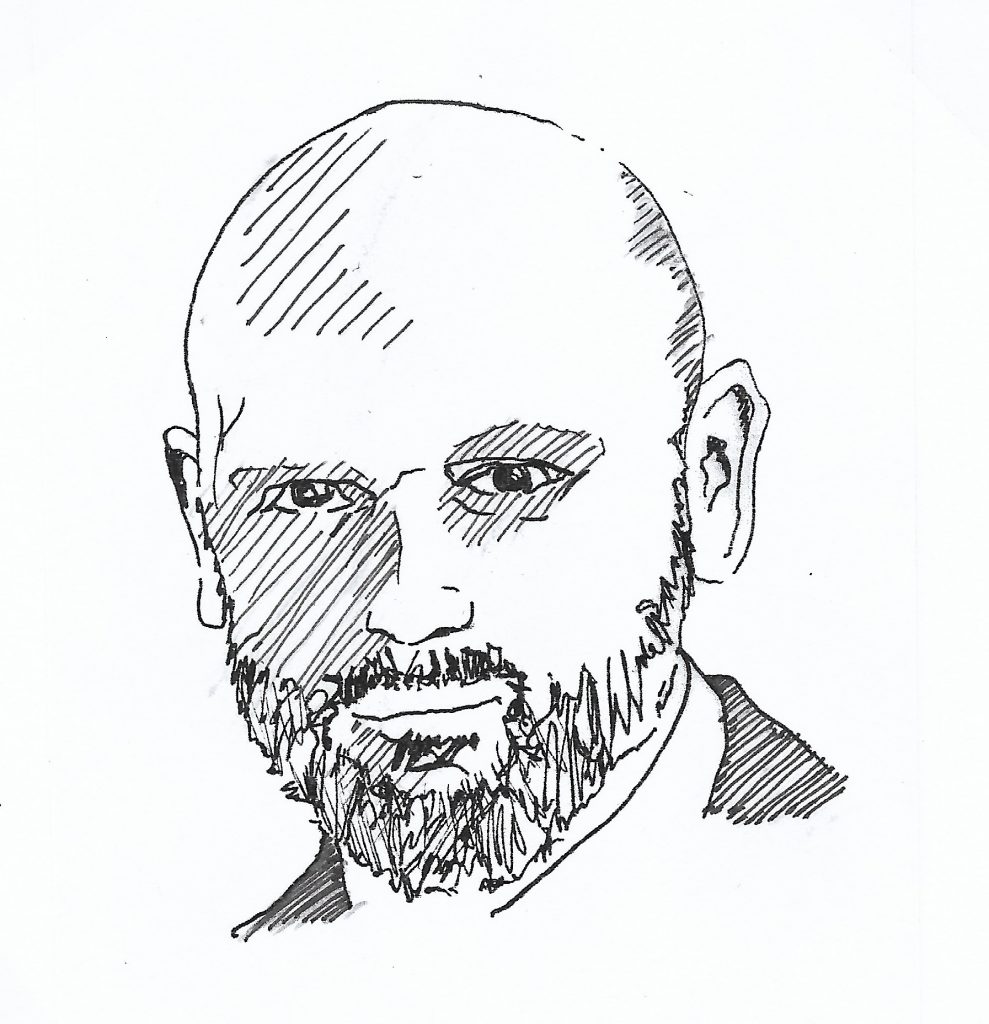
Nick Fox teaches Ancient Greek Literature and Philosophy as well as Studio Art. He also serves in the Army Reserves and teaches Military History at the University of Minnesota. He lives across the street from a beautiful graveyard in Minneapolis with his wife and daughter.
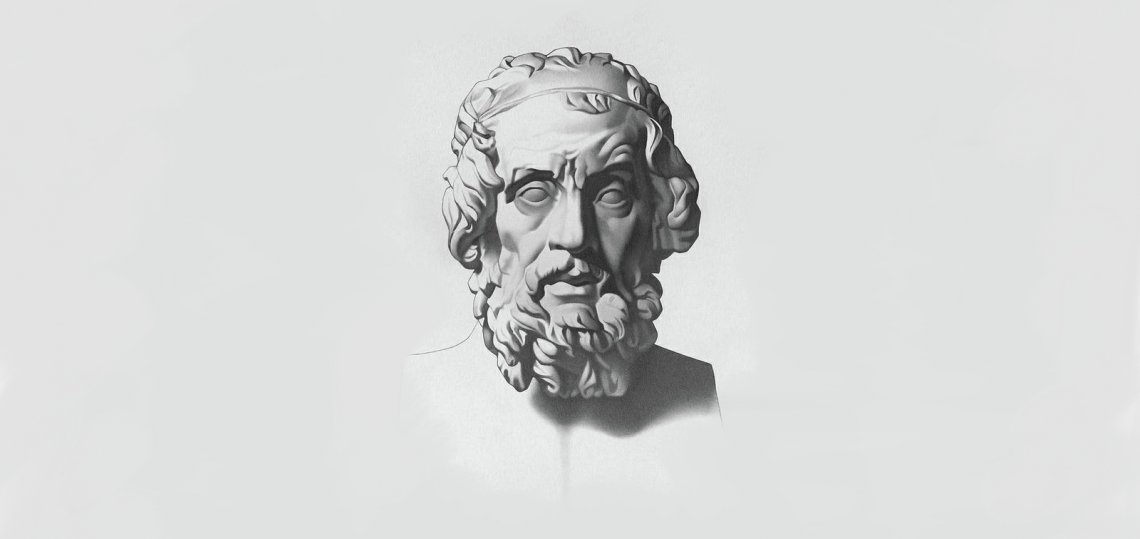



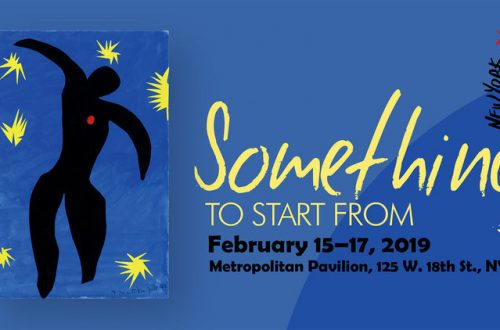
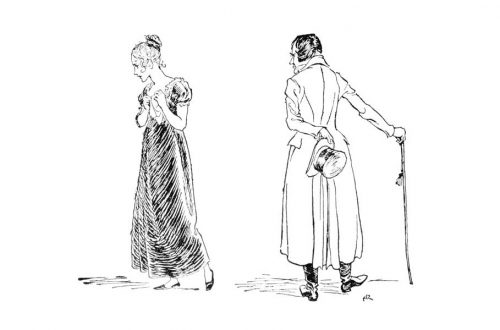
One Comment
Matthew Smith
Excellent article my good man. You’d love the poem by Auden “the shield of Achilles” which absolutely captures the essence of what you correctly identify as the heart of Tradgedy in this piece.
https://m.poets.org/poetsorg/poem/shield-achilles
As long as there exist psychopaths who wish to rule others (there will always be) this archetypal idea will always pan out through force, why the Iliad is one of the greatest works of man. Force is the only option if you wish to rule.
Luckily this trend seems to be minimizing as time goes on. Physical violence continues to decrease with time, thank God. Unfortunately those same people who wish to rule have moved on as well, but what they’ve moved onto is not covered by the Illiad and a 1984 article is for a different time.